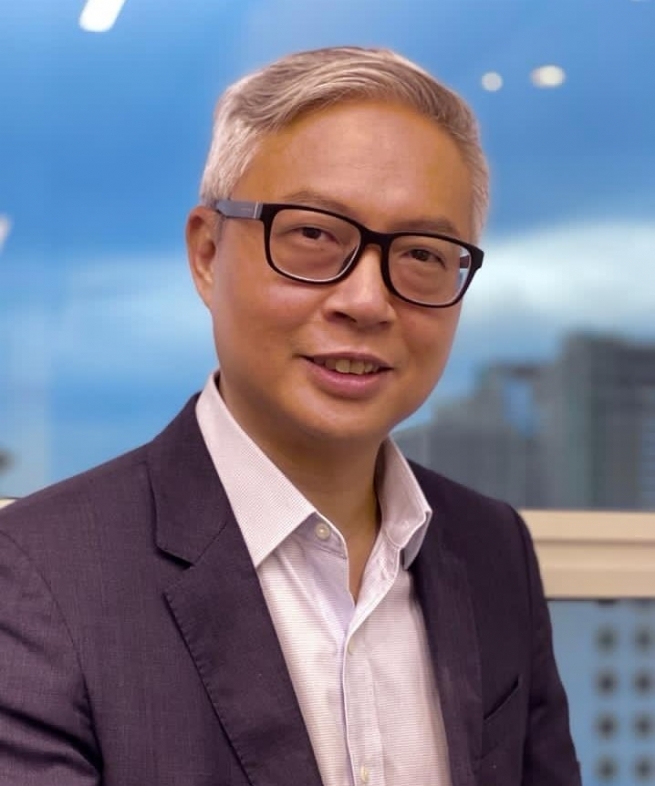Upward trend of FDI inflows from Singapore to Vietnam
Despite the adverse impact of the COVID-19 pandemic, Vietnam and Singapore have maintained steady growth in both trade and investment. “In order to attract quality FDI, it is also important to develop a clear and facilitative legal framework,” said Mr. Seck Yee Chung, Vice-President of the Singapore Business Group, in an interview with Vietnam Business Forum when asked about how Vietnam can attract quality investment. Thu Ha reports.

Mr. Seck Yee Chung, Vice-President of the Singapore Business Group
How do you evaluate the investment outcome between the two countries in recent years, and developments and trends of FDI inflows from Singapore to Vietnam?
Singapore has been, and continues to be, a leading investor in Vietnam. In fact, Singapore currently accounts for roughly 37.6% of FDI inflows into Vietnam, making it the country’s largest investor.
Da Nang is a particularly attractive investment destination, being home to a number of industrial projects spearheaded by Singaporean companies. To name a recent undertaking, a consortium including Sakae Corporate Advisory and Surbana Jurong entered a joint venture with the Da Nang People’s Committee to support urban and infrastructure schemes as part of the city’s master plan.
Another highlight of Singaporean investment in Vietnam is the establishment of multiple projects across the country by Vietnam-Singapore Industrial Park (VSIP), a long-standing joint venture between Becamex Binh Duong and a consortium of Singaporean companies. Other major investors include well-established property companies like Keppel Land, CapitaLand, and Frasers. These companies have a growing portfolio of residential and commercial properties.
These investments are representative of the upward trend of FDI inflows from Singapore to Vietnam.
The COVID-19 pandemic has adversely affected investors in general and those from Singapore in particular. Can you tell us what difficulties Singaporean businesses operating in Vietnam face?
The adverse impact and challenges created by the COVID-19 pandemic on investors and businesses are endured by every country, not just Singapore and Vietnam.
Definitely, certain sectors are more vulnerable to the circumstances of the pandemic - in particular, the travel and hospitality industry. Even in Vietnam, where domestic travel managed to pick up occasionally throughout the pandemic, the country lost approximately US$23 billion in tourism revenue in 2020. Amidst the present outbreak, domestic travel has once again come to a halt, adding to the financial stress of companies in the industry.
Another problem posed by the COVID-19 pandemic is the lack of mobility. Due to the travel restrictions and border closures implemented by almost all countries, including Vietnam, it is difficult for foreign managers, experts and investors to enter the country to manage ongoing businesses or look for potential new projects. Overall, this creates a drag effect in terms of bringing in new investments or in monitoring and progressing the implementation of existing projects.
How do you assess the prospect of Vietnam's economic recovery?
Certainly, Vietnam’s quick response to the COVID-19 pandemic in the form of strict social distancing measures and mask mandates, and the general mindset of compliance among the population, has enabled it to manage the various waves of outbreaks.
Even though Vietnam’s economy has suffered through the pandemic, it nonetheless remains one of the fastest-growing economies in Southeast Asia according to an assessment by the Asian Development Bank. This can be credited to Vietnam’s participation in free trade agreements, as well as its growing infrastructure development - both of which are factors that encourage a supply chain shift to Vietnam and yield optimistic prospects for economic recovery.
However, it is important to note that the implementation of aggressive pandemic management measures is only the first step in a long path to recovery. Moving forward, economic recovery will depend on various factors, and a key component is the Government’s adoption of a robust and comprehensive vaccination program across the country.
The ability to bring in needed foreign expertise will also help with Vietnam’s economic recovery, and the process of obtaining work permits in the country should be made less complicated. Recruiting foreign experts that can positively contribute to Vietnam’s economy will be difficult if work permits remain complicated to obtain.
In your opinion, what are the challenges for Vietnam to attract quality investment from other countries in general and from Singapore in particular?
Vietnam should maintain its agenda to develop smart cities across the country. This can be achieved by keeping market access open for both domestic and foreign businesses and investors, and to encourage the development of new business models that incorporate the latest technologies and innovations into projects.
In order to attract quality FDI, it is also important to develop a clear and facilitative legal framework, that is transparent and consistent in its implementation for both domestic and foreign investors. For example, procedures for assessing land are not always clear and straightforward, and deter or slow down development.
Finally, it is important too to have a workforce that is skilled and cost-efficient. This in turn highlights the importance of human capital development through education, training, and upskilling.










